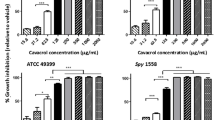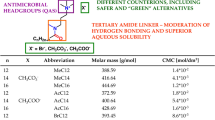Abstract
IT was observed by one of us (S. S. B.) in 1939 that hexa-methylene-tetra-amine, in a 10 per cent solution in normal saline, killed cholera vibrio in less than half an hour up to a concentration of 1012. Although interrupted by conditions of field service, efforts resulted in the production of three crude compounds of hexamine linkage to para-aminobenzene sulphonamide, experiments with which, on animal and human cholera infection, gave hope of successful chemotherapy against Asiatic cholera. A chance discussion with the scientific department of C.I.B.A. (Basle) resulted in our obtaining a condensation product—"6257"—of two molecules of 2 p-amino-benzene sulphonamido-thiazole (‘Cibazol') and three molecules of formaldehyde with the formula C21H22O6N6S4 (the actual constitution not having yet been worked out) and molar weight much greater than that of any other sulpha compound so far employed in clinical therapy.
This is a preview of subscription content, access via your institution
Access options
Subscribe to this journal
Receive 51 print issues and online access
$199.00 per year
only $3.90 per issue
Buy this article
- Purchase on Springer Link
- Instant access to full article PDF
Prices may be subject to local taxes which are calculated during checkout
Similar content being viewed by others
Author information
Authors and Affiliations
Rights and permissions
About this article
Cite this article
BHATNAGAR, S., FERNANDES, F., SA, J. et al. A New Sulpha Compound ("6257") and its Use in Human Cholera Infection. Nature 161, 395–396 (1948). https://doi.org/10.1038/161395b0
Issue Date:
DOI: https://doi.org/10.1038/161395b0
This article is cited by
Comments
By submitting a comment you agree to abide by our Terms and Community Guidelines. If you find something abusive or that does not comply with our terms or guidelines please flag it as inappropriate.



